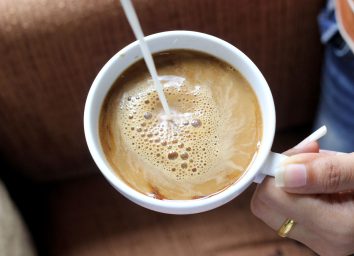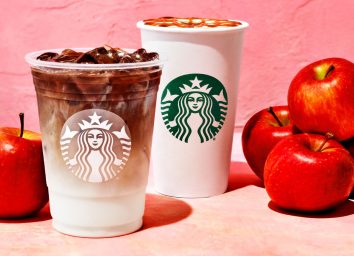These 5 Drinks Cause the Worst Teeth Stains, Dental Surgeon Says

Especially in the time of the pandemic, maybe you've found it a relief not to fuss over your appearance as much as you had for probably as long as you can remember. Still, nice teeth can serve as a subconscious symbol to the world that you're in good health overall. One dental expert says if you're finding that your favorite drinks left their marks on your smile, there are some tips the pros know so that you don't have to give them up completely.
Dr. Ryan Chaliff, MD, DDS, is a doctor of dental surgery in Nashville, TN, and the creator of BrideBRITE, a dental system that uses enamel-safe, dual LED light technology to whiten teeth, according to a brand rep.
This whitening whiz chatted with Eat This, Not That! to reveal a list of the drinks that he says are most likely to change the pigment of your teeth. Keep reading to learn the clinical explanation behind each—plus, smart workarounds for the next time you pour them.
Also, if you're into the science behind staying well, don't miss One Major Effect Pickle Juice Has on Your Gut, Says Science.
Coffee
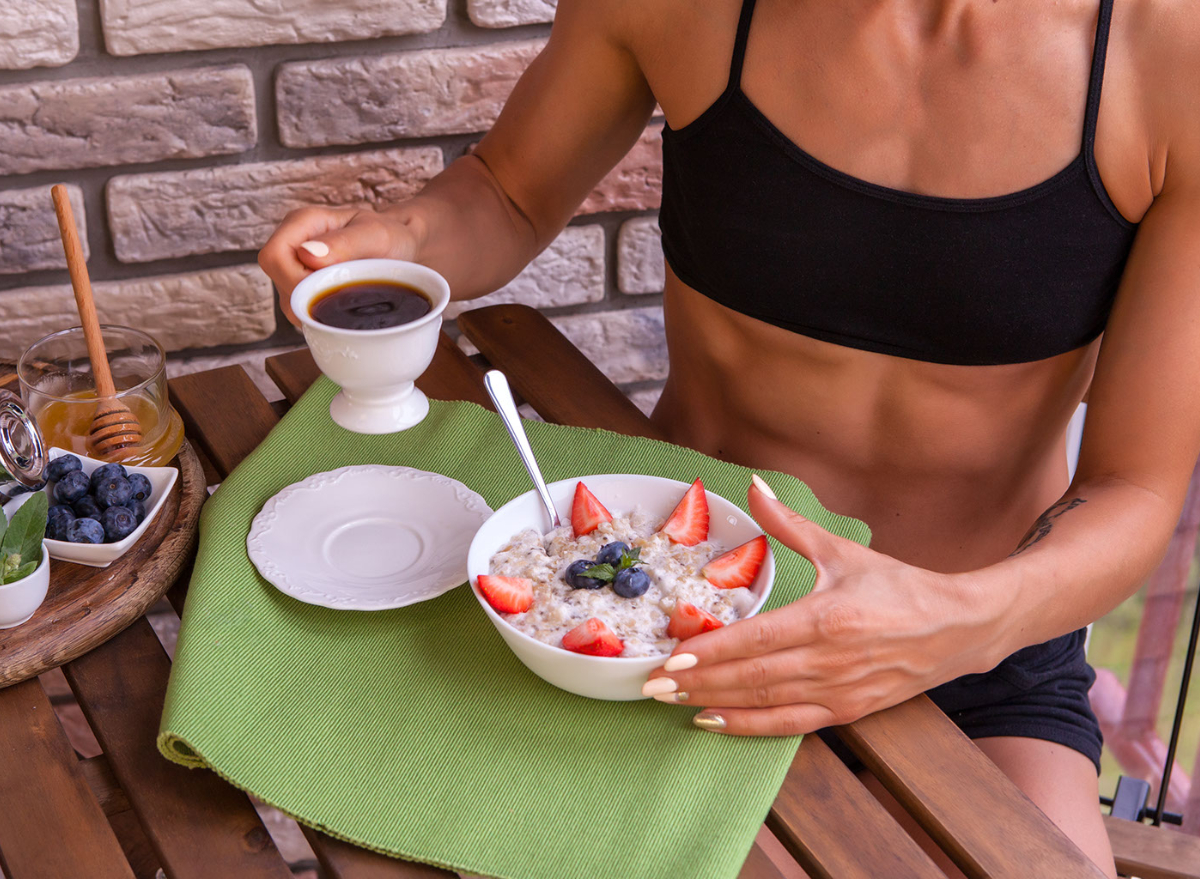
You guessed it: If you're one of the 80% of people who regularly sip on coffee, it may be doing a number on those gleamy whites. Chaliff explains that coffee is "rich in chromogens, which are highly pigmented molecules that can stain the surface of the tooth."
He says coffee also contains tannins, which enhance the ability of those pigmented molecules to adhere to the tooth surface. This, then, can lead to stains.
Sign up for the Eat This, Not That! newsletter for practical food and wellness news.
Tea
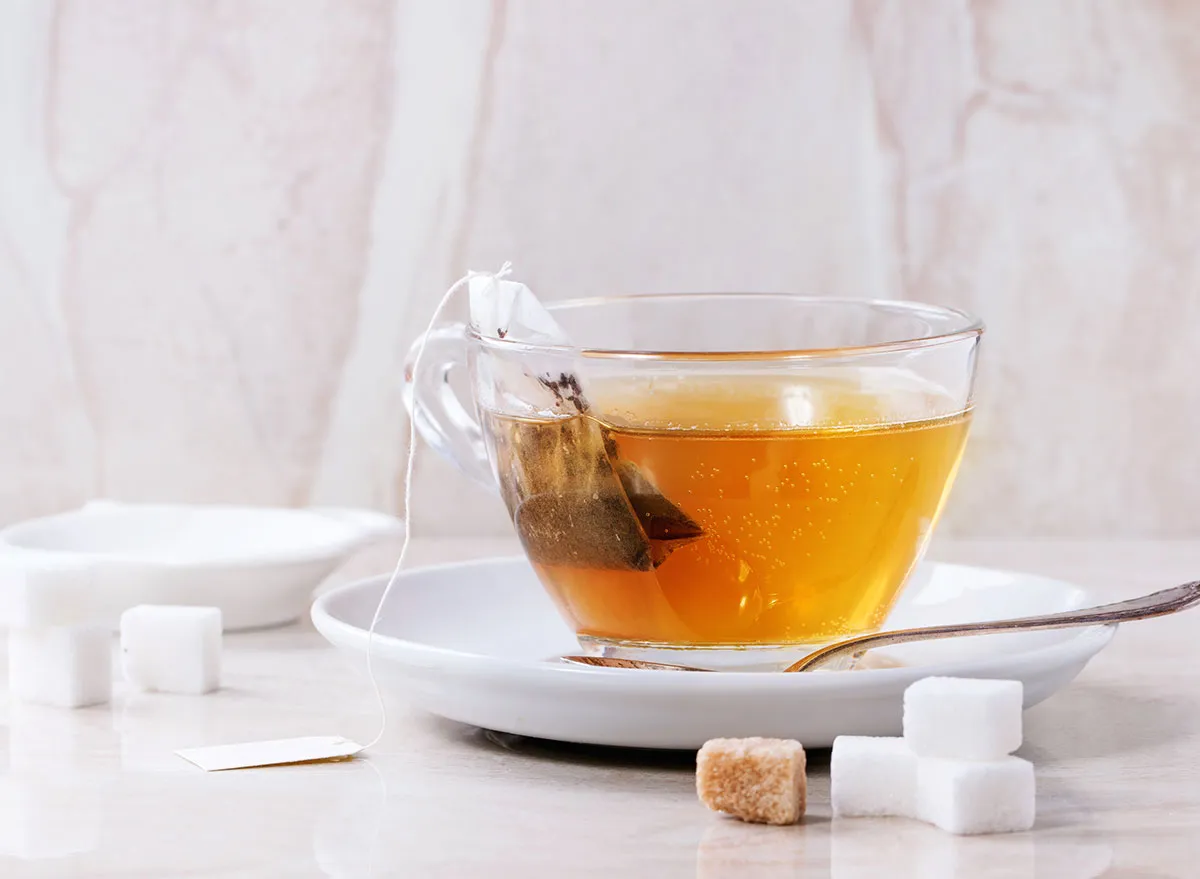
Tea also contains chromogens and tannins, Chaliff says—but tea's color has even more potential to bind to teeth than coffee does. "Tea is especially rich in tannins, which makes it an even more likely culprit to cause stains than coffee," Chaliff explains.
He also offers an interesting way to cut down on tea's staining power: "Adding some milk to your tea can help limit its staining ability, as the casein in milk prevents tannins from adhering to the tooth!"
(Another key to drinking tea? One particular type might prevent kidney stones, according to a new study.)
White Wine
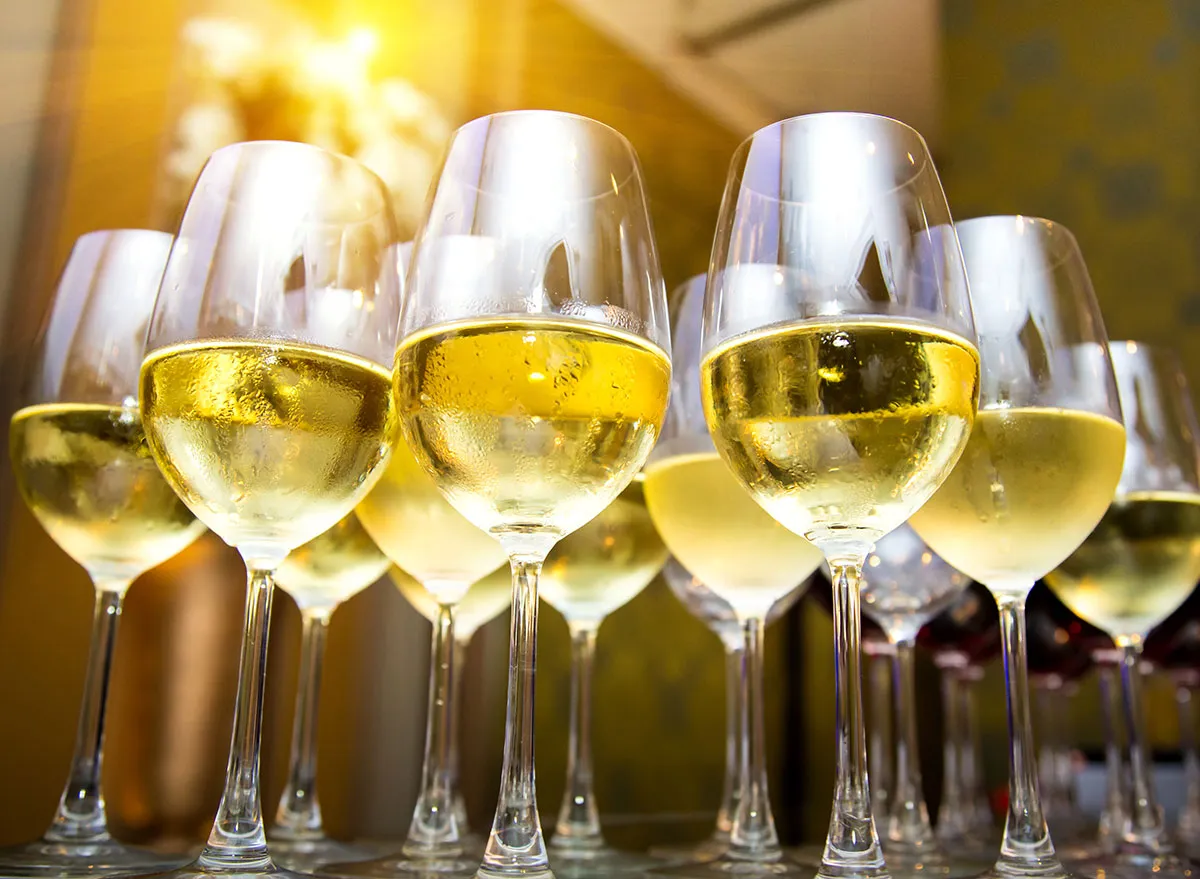
You totally thought we were going to say red wine, didn't you! Chaliff says that, yes, both red and white are "very acidic, which breaks down your enamel allowing for stains to penetrate the surface of your tooth."
But here's what's wild about white, as he explains: "Although we may not associate white wine with dental stains, it is even more acidic than red wine and can make your teeth vulnerable to stains."
Chaliff offers this pro tip: "Wait at least 30 minutes for your mouth to naturally buffer itself after drinking an acidic beverage before brushing your teeth. Otherwise, you will be wearing down that enamel that has been softened already by the acidity in your beverage."
Insert "mind-blown" emoji here.
Juice from Berries
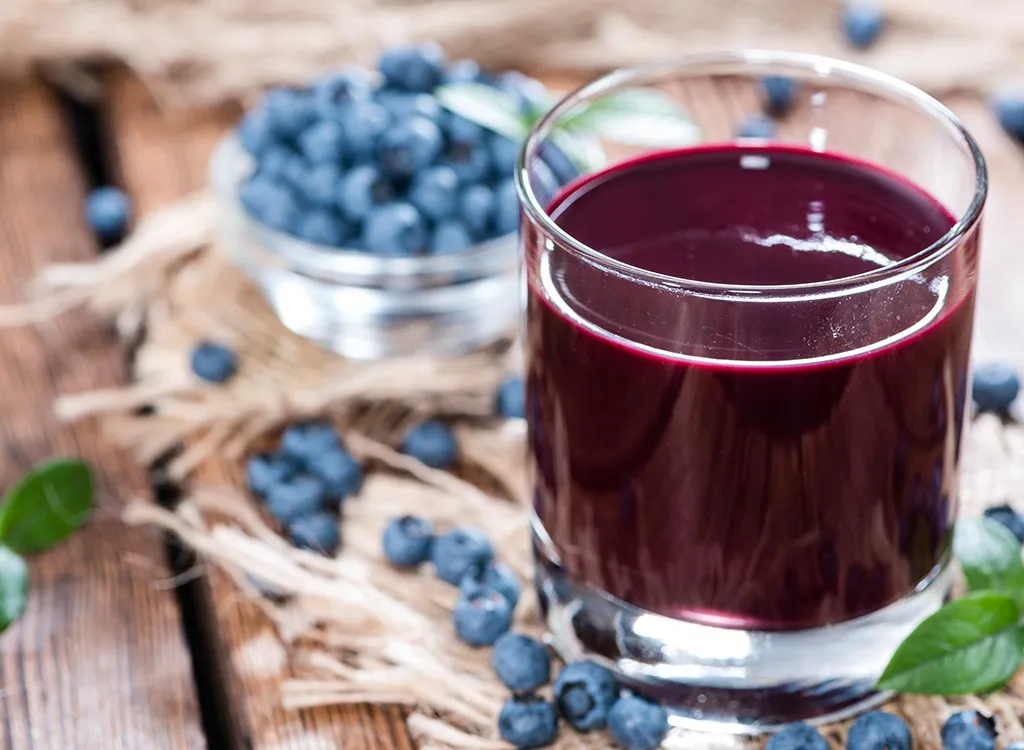
Chaliff points out that berries are a "great healthy snack," but they're also highly pigmented and can lead to those frustrating stains. "They are also acidic, thus making the surface of your tooth more prone to stains," he says.
To combat those fruit stains, Chaliff suggests you eat crunchy green vegetables, like celery and lettuce, to help naturally help scrub away the berry or fruit juice stains on your teeth while you chew.
(We should note that one recent study discovered that a particular berry juice may actually benefit teeth in another intriguing way—check it out.)
Soda, Energy Drinks, and Sports Drinks
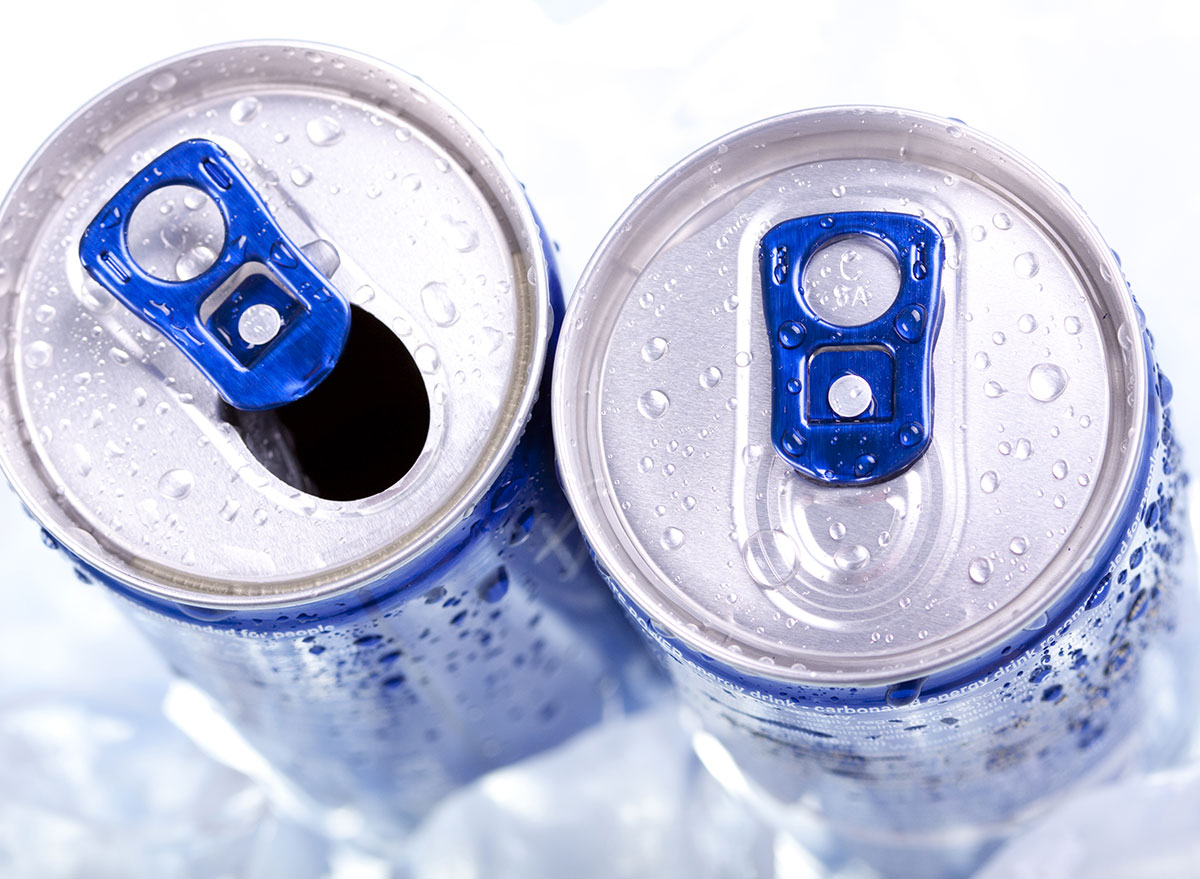
"Highly acidic and many times filled with sugar," is how Chaliff describes all three of these beverage choices. He adds that they'll break down your enamel, which not only allows stains to penetrate more effectively, but will eventually allow the inner part (dentin) of your tooth to be more visible."
What's the big deal about exposed dentin? "Unfortunately, dentin is naturally darker than enamel and will lead to yellow appearing look of your teeth."
If you don't want to give up that energy drink, Chaliff says you can try sipping them through a straw to limit the amount of contact with your tooth surfaces.
For more like this, keep reading:
- This One Ingredient Naturally Whitens Coffee-Stained Teeth, New Study Says
- This Is the Worst Food for Kids' Teeth, Dentist Says
- This Popular Juice May Reduce Your Heart Disease Risk, New Study Says
- This Popular Asian Fried Chicken Chain Is Opening 23 New Locations in 5 States
- The Worst Eating Habits Americans Need To Avoid Now, Say Dietitians
